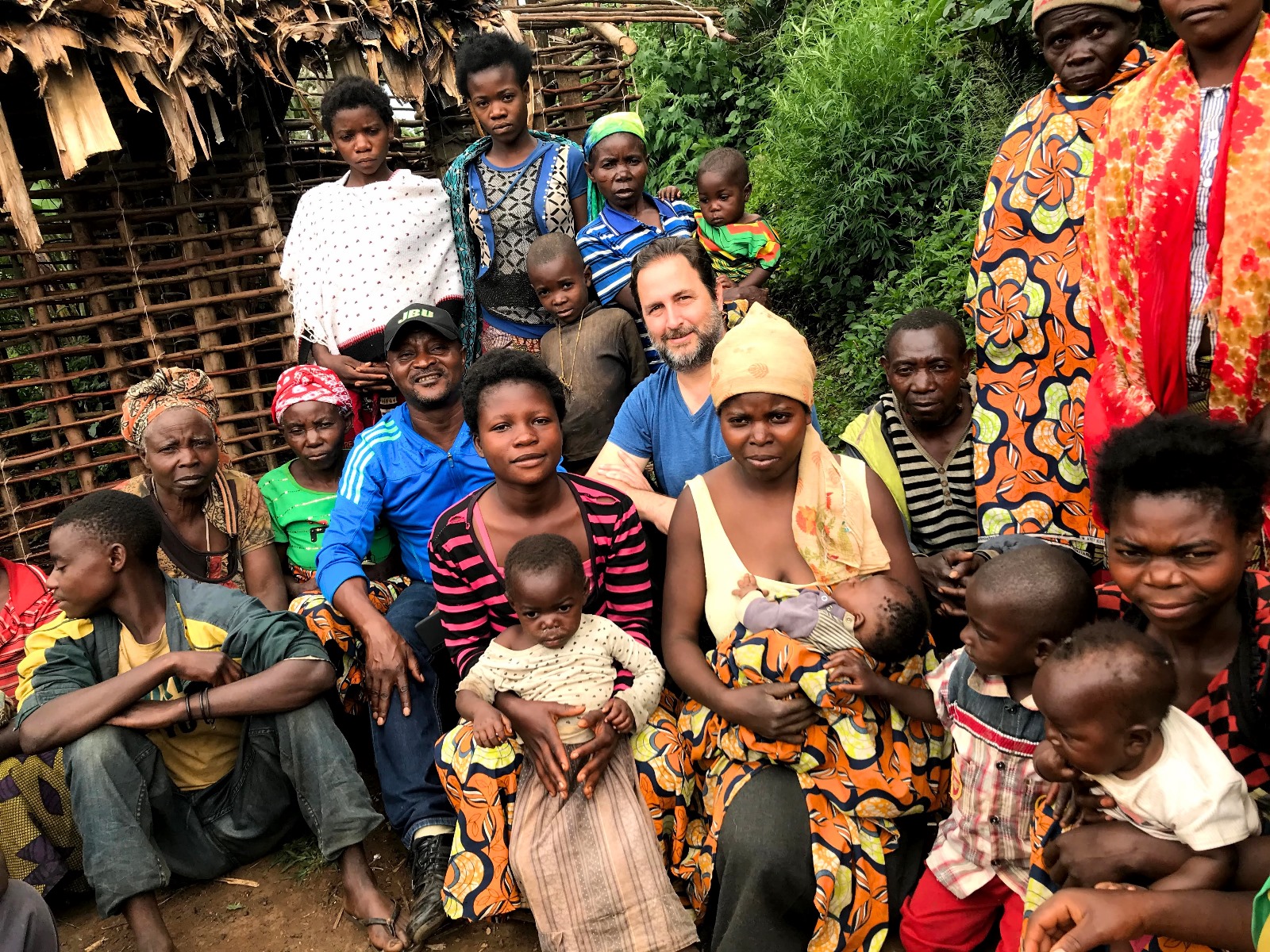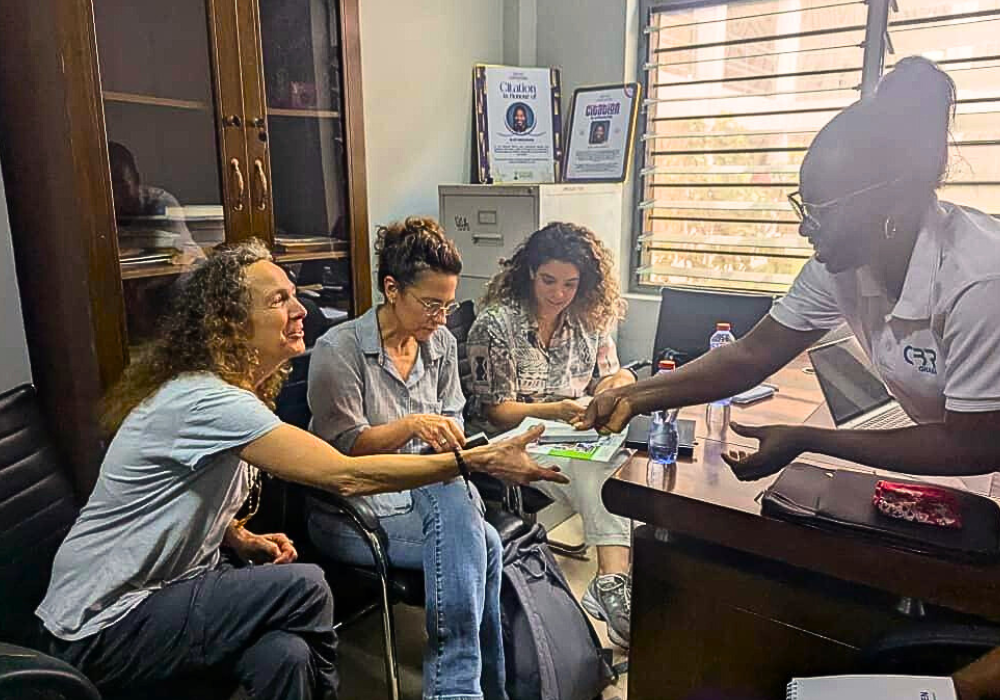Global Voices: On the Front Lines of Crisis

When Africa 2030 officially launched as an NGO in 2014 in the eastern region of the Democratic Republic of Congo, its vision was to develop community-driven conservation projects across Africa. However, as founder Ariel Kedem and his team immersed themselves in the region, and began to understand the immense humanitarian needs, the organization evolved into a multifaceted initiative supporting local communities with life-saving interventions.
The work of Africa 3030, as it is now known, spans several areas: Aside from protecting endangered eastern lowland gorillas, it operates a health and nutrition center in Mululu, combats malnutrition by cultivating nutrient-rich spirulina to feed hundreds of severely malnourished children, provides school scholarships, supports oral healthcare, and runs a microfinance program for approximately 150 women. But as conflict intensifies in eastern DRC, with Rwanda-backed rebels seizing control of vast territories, the organization’s work, and the lives of those it serves, face unprecedented challenges. OLAM spoke with Ariel about the impact of the crisis on the men, women, and children at the heart of Africa 3030’s mission.

Q: Why did you choose to focus your work in the DRC?
Ariel: I’ve always been drawn to Africa; I traveled there extensively and studied African Studies. My professional background includes working with nonprofits in Israel and volunteering, so founding a nonprofit in Africa felt like a natural extension of my passions.

Q: How has the recent rebel offensives impacted Africa 3030’s operations?
Ariel: The natural wealth of the DRC has long made it a target for exploitation and plundering. It’s the second-largest country in Africa and home to the Congo Basin, the world’s second-largest rainforest. It’s one of the most biologically diverse places on earth, home to unique species like the eastern lowland gorilla, as well as rare minerals that are critical to modern technology – cobalt, tungsten, and others essential for smartphones, laptops, and electric vehicles. Over 80% of these minerals are found in eastern DRC, and they are the focus of the current conflict.
The struggle for control of this area has led to devastating violence, with millions of lives lost over the past three decades.
Now, however, the situation has grown particularly dire. The M23 rebel group have taken control of large areas, including major cities like Goma and Bukavu. Approximately 1.5 million people have been displaced into refugee camps, under horrific conditions. More than 3,000 people have died in recent clashes, with reports of mass rapes and other atrocities.
For the first few weeks after the rebels arrived, our staff and community members couldn’t leave their homes for fear of being shot. Slowly, an uneasy equilibrium has emerged, allowing us to resume some operations.
However, we continue to face constant challenges. It can still be dangerous for local staff to leave their house. We can no longer transport materials safely, and the cost of essential supplies like fertilizer for our spirulina farm has skyrocketed. Without these supplies, we cannot produce the spirulina needed to save children’s lives. And if things take a turn for the worse, we may not be able to continue operations at all.
Even basic banking services have collapsed. With no way to pay salaries or purchase goods, local economies are grinding to a halt. If this continues, hunger and desperation will only deepen, and we fear the rebels will respond with further violence.

Q: How is Africa 3030 adapting to this crisis? Are you able to continue supporting children and families despite the conflict?
Ariel: We are a small organization in a large conflict, but we have always operated in a volatile environment, so adaptability is part of our DNA. Our staff, all local to the region, are incredibly resourceful. Every day brings new logistical challenges, but we are determined to do what we can to prepare for the unknown, and to continue our work.
Adapting, however, is difficult due to the volatility in the region. For example, when thousands of people from rural areas fled to Bukavu, where many of our staff live, we tried to develop some sort of infrastructure to help them in cooperation with [OLAM partner] IsraAID, but we had to stop this process due to the violence and highly unpredictable situation.
But our program participants inspire us to continue finding ways to continue. Shortly after the rebels took over, we stopped operations in an effort to protect our team. But the children refused to stay away. They simply showed up - reinforcing our responsibility to support them in whatever we we could!

Q: What role do local community members normally play in maintaining and rebuilding your programs? Has this changed since the violence began?
Ariel: Local community members are the backbone of Africa 3030. Our staff live in the communities we serve, and their resilience keeps us going. However, the danger has made it impossible to launch new initiatives, such as expanding our microfinance program to 70 additional women. Despite these challenges, we remain committed to supporting the community in every way we can.

Q: What support do you need most right now, whether from the global Jewish community, humanitarian networks, or policymakers?
First and foremost, we need people to care. I fully understand the instinct for Israelis, Jews, and others to go further into their own shells at this moment in time. But with so many conflicts in the world, what we actually need is to find ways to be more attached, not less.
At the very least, take an interest. Educate yourselves about what is happening in the DRC. Ask questions. Share what you learn.
Financial support is also critical. The rising costs of basic supplies and the logistical hurdles we face mean that even maintaining our current operations requires significant resources. If the security situation worsens, we may have to start working with people in their homes – which will triple our costs. Additional funds would allow us to prepare for the unknown and respond to emerging crises.
We are also seeking partnerships. Organizations already working in Africa could amplify our impact by collaborating with us. Together, we can find innovative solutions to the enormous challenges on the ground.
Learn more: http://www.africa3030.org
* All photos are courtesy of Africa 3030.




